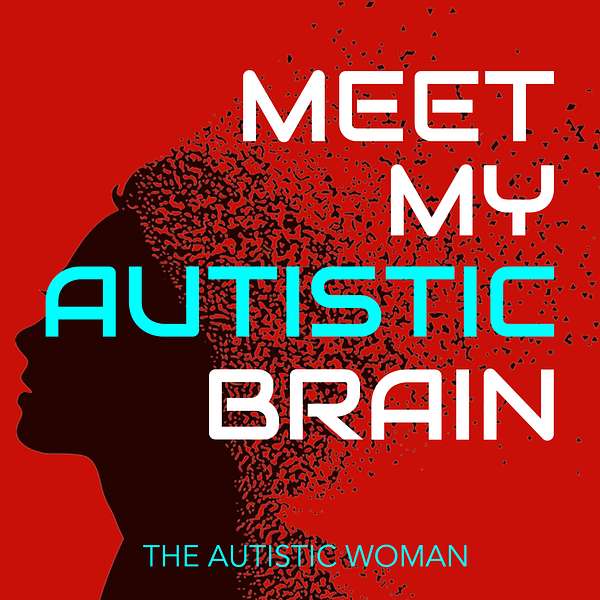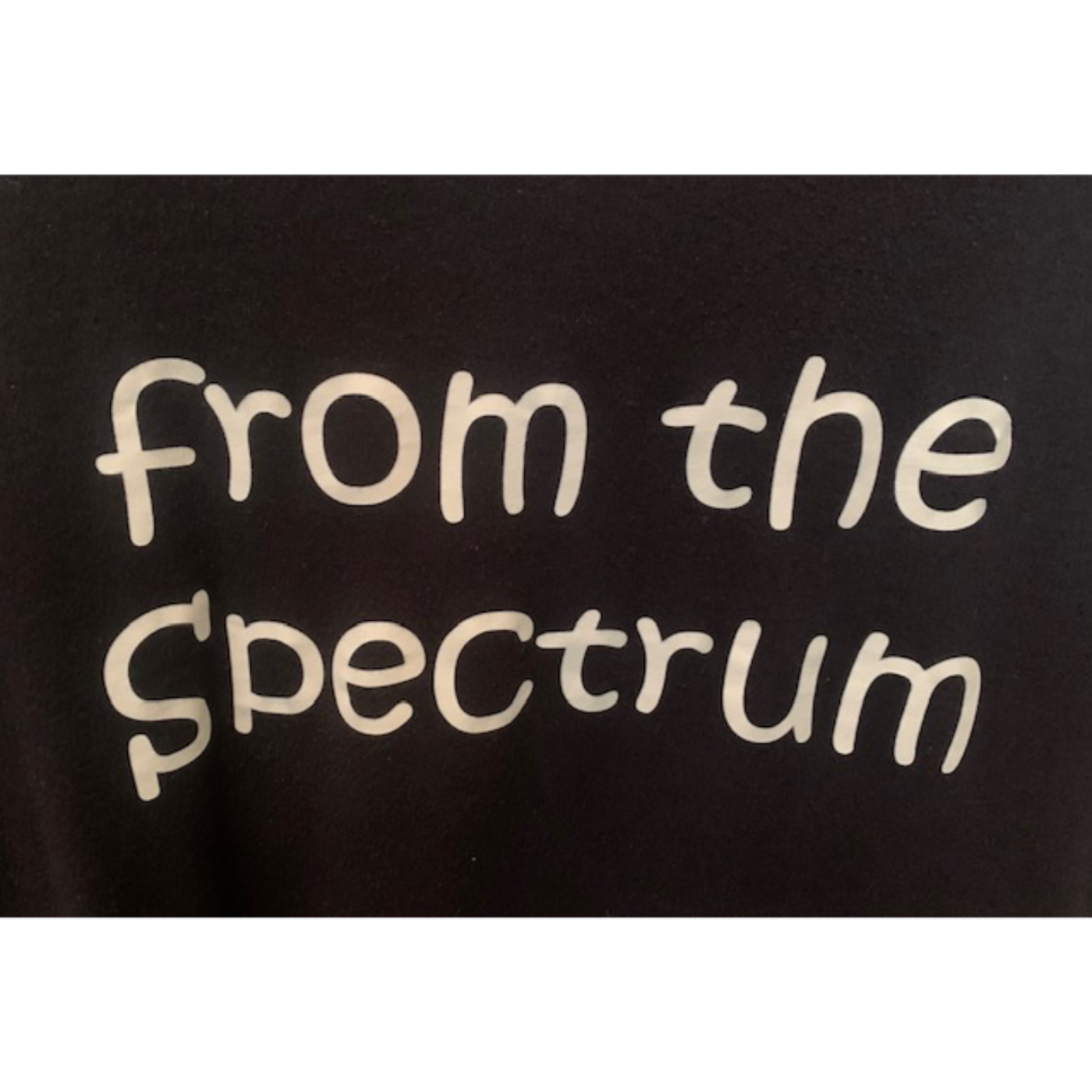
Meet My Autistic Brain
What is it like to find out late in life that you are autistic? The Autistic Woman talks about life experiences and how autistic traits affect her as an adult. You'll hear personal stories, opinions about research and the importance of autistic voices. Includes some fun stuff too and interviews of autistic guests! This podcast is primarily for adult autistics and their family and friends. It's one of the top 0.5% most popular shows globally as ranked by Listen Score with more than 1,000,000 downloads.
Meet My Autistic Brain
Why Circadian Rhythm Matters
Use Left/Right to seek, Home/End to jump to start or end. Hold shift to jump forward or backward.
Can you reset your biological clock? The body’s circadian rhythm keeps you on track and disturbances to this rhythm cause physical and mental problems. This might sound familiar to autistics.
RATED IN THE TOP 0.5% GLOBALLY with more than 1,000,000 downloads!
If you are an autistic person who has written a book about autism or if you have a guest suggestion email me at info@theautisticwoman.com.
Instagram
Ko-fi, PayPal, Patreon
Linktree
Email: info@theautisticwoman.com
Website
June 24-28, 2026 In Rewilding Together
It helps control your daily schedule for sleep and wakefulness. It’s influenced by light and dark. It alters your body temperature. It influences thousands of metabolic processes. It keeps you alert or helps you drift off. Most living things have one.
This episode is about a natural, internal process that regulates the sleep–wake cycle and repeats roughly every 24 hours. It’s known as the circadian rhythm.
It’s a 24-hour clock with about 20,000 cells located above the optic nerves. The rhythm or cycle is determined and set according to light that reaches the retina.
The circadian rhythm adjusts to functions of our body. It activates the digestive system at a time we would normally eat, regulates energy and coordinates mental and physical systems. When meal times are irregular our circadian rhythm is affected.
A circadian rhythm function is to align sleep and wakefulness with night and day. It produces melatonin to help us fall and stay asleep. During sleep the brain carries out various functions to help us live and be healthy. When we’re sleep deprived some of these functions don’t take place which can result in mental and physical illnesses.
When we’re awake when we should be asleep and vice versa our circadian rhythm is affected. It sets us up for misalignment of our body’s clock. That can result in fatigue, mistakes and further sleep issues.
One condition seen with a disrupted circadian rhythm is called sleep inertia. Many autistics will be familiar with this. Sleep inertia can make it difficult if not impossible to get out of bed. It can also make it hard to get started in the morning.
When I was doing research for this episode I found that there is a government agency that does a lot of studies of sleep. That agency is NASA and it makes sense because astronauts certainly have a disrupted sleep cycle. They are in an environment like no other with irregular work shifts, gravity differences and varying sleep times. In some cases, astronauts use sleep medication as needed.
One area of study is the circadian rhythm. Our biological clock is set to the 24-hour day that we experience. On Mars, a day is closer to 25-hours long. In 1997, NASA landed the Sojourner rover on Mars and of course, it needed to be operated and monitored during the 25-hour day. Ground crew were assigned shifts however one month into the project there was a near-mutiny when more than 80% of the ground crew found it too difficult to adapt to the Mars day and refused to do it.
As I mentioned earlier, the circadian rhythm is responsible for managing the digestive tract and there are anecdotal evidence that several of the ground crew developed appendicitis when trying to adapt to a Mars schedule.
Houston realized it had a problem.
When the Phoenix Mars Lander operated on Mars, it too had to be monitored by ground crews to gather data for research. NASA used the opportunity to study the feasibility of using a fatigue management program to help personnel adapt to Mars’ 25-hour day. The mission lasted 78 days.
So think about this for a minute and I’m using 25 hours for simplicity even though the Mars day is more like 24 hours and 40 minutes. Since the mission lasted 78 days, by the end of the mission a crew member’s biological clock would be off by 78 hours.
NASA tried a variety of fatigue management solutions including naps, use of caffeine, exposure to light. It measured fatigue and its affect on performance, health and mood.
NASA found that light box exposure had no effect on circadian rhythm but later determined that fluorescent light delays the sleep cycle. The study found that crew took more naps and used more caffeine to cope.
Nonetheless the crew experienced fatigue, sleepiness, and irritability. They had decreased levels of concentration and energy, disturbed sleep and endocrine physiology, and impairment of alertness, mood, vigilance, cognitive function, and learning. By the end of the study, approximately 80% of the crew had adapted to the Mars day but averaged only 4-6 hours of sleep per day. Some got as little as 1 hour of sleep.
My impressions after reading a few NASA studies is that sleep and the circadian rhythm are somewhat elusive. We seem to know what disturbs the rhythm but are less clear on how to restore or reset it.
[A later study: The specific countermeasures components consist of diet modification, nutritional supplementation, stress relieving virtual reality exercises, and aerobic and resistive exercise.]
Other than the 24-hour day, what determines circadian rhythm?
- Hormones - such as melatonin, insulin, also acetylcholine and leptin
- Light and dark
- Body temperature and metabolism
- Age
- Physical activity
- Genes, some are called clock genes
Research shows that the cells and tissues of our bodies contain these genes, in other words, they’re not found solely in the brain.
What other things affect circadian rhythm?
- Stress
- Sleep and wake times
- Mental health
- Certain health problems, pain being one of them
- Medications
- Travel
- Comfort
- Sleep habits
- Eating late at night and not maintaining a consistent meal schedule
- Medications
- Daylight savings time
- Caffeine intake
- Work hours
I would add that imo latitude affects circadian rhythm which is another way of saying light and dark. Seasons affect it as well. I would imagine that the body acclimates to the latitude and seasons where a person lives. One reason it would be challenging for me to live at a different latitude is due to the amount of light I am accustomed to and need.
The results of a disrupted circadian rhythm
- Affects mood and can lead to depression.
- Affects body’s ability to make certain hormones
- Affects body’s ability to rest and recover
- Cardiovascular risk and cancer risk
- Seasonal Affective Disorder
- Food cravings including late at night
- Low energy
- Weakened immune system
- Emotional outbursts including irrational anger
- Jet lag. The rumors are true that jet lag is worse when traveling east than when traveling west as it is harder to advance the circadian rhythm
- Some studies show that severity of Major Depressive Disorder correlates with the degree of misalignment of circadian rhythms
What ways do we hear can help with circadian rhythm?
Typical advice about sleep habits etc. Listen to episode called Sleep Deprivation is Tiring. I also heard two things I hadn’t heard before that sound interesting:
- Drink very cold drinks like iced tea or water (the body temperature drops as we get closer to bedtime)
- Turn on more lights inside your home during the day. Conversely, turning the lights low or off at night can enhance sleepiness.
These surprised me at first. We hear about having a warm glass of milk or cup of hot tea before bed. Drink cold drinks? I can see the logic. I’ve also found though that a hot bath can help me relax.
Turn down the lights. My house is very bright from natural light during the day. I like to have lots of lights on at night. I’m experimenting with using a timer and dimming the lights as it gets closer to bedtime.
I would love it if these little changes help!
If you haven’t heard or tried the “typical” solutions for sleep deprivation or circadian rhythm disorders it includes:
- Stop eating 3 hours before bedtime
- Avoid caffeine in the afternoon and evening
- Limit alcohol intake
- Go to bed and get up at consistent times
- Eat your biggest meal early in the day
- Avoid blue light, like from phones, at night
- Get blackout curtains
- Get out in the sunlight early in the day
- Set your thermostat a degree or two lower at bedtime
- Eat at consistent times during the day
- Exercise early in the day.
One thing that unexpectedly has helped me fall back to sleep when I wake up in the middle of the night is to use earplugs. I can’t explain why but they shut off my brain. Even in a room that is completely quiet the earplugs work. It’s not the noise in the environment that’s keeping me awake, it’s the noise in my head. Somehow the earplugs signal my brain to be quiet and let me sleep.
If you try it, don’t give up if the earplugs feel uncomfortable at first. Use them a little bit at a time increasing until they feel okay. You’ll always be aware that they’re in your ears yet you can be okay with that eventually. Plus the benefit outweighs the inconvenience. My favorite ones are called Spark Plugs. There are many types on the market so experiment until you find what suits you best.
I’ve recently heard of products that you can spray onto your pillow that typically have the scent of lavender or hops. I’ve read that these scents are relaxing however what I find fascinating is that by having the scent on your pillow it trains your brain to associate sleep with the scent.
If you try it and you can’t fall asleep then it might be good to stop or your brain might get trained with the opposite result.
Circadian rhythm - we know it’s our body’s biological clock. We know it affects all kinds of bodily functions. There are still more questions that research may someday be able to answer.
Can restoring Circadian rhythm cure mental and physical illness?
Is there an effective way to realign our circadian rhythm?
How can we help the autistic brain get a good night’s sleep?
-
Podcasts we love
Check out these other fine podcasts recommended by us, not an algorithm.

Atypical: The Podcast
The Atypical Crew

